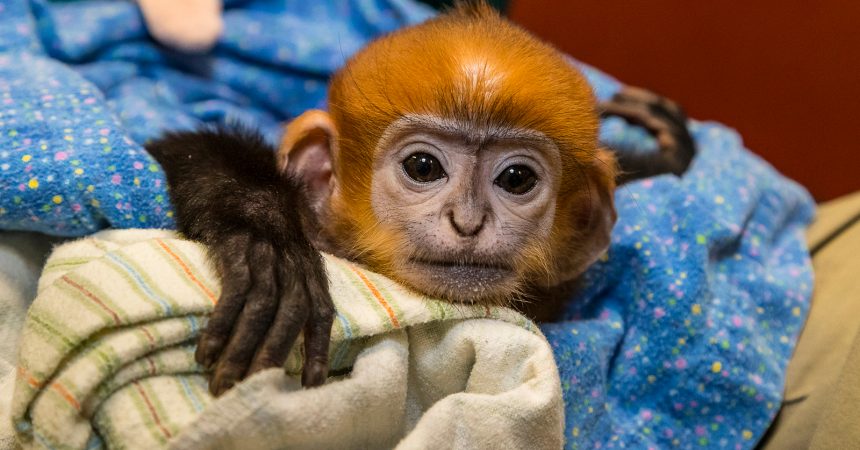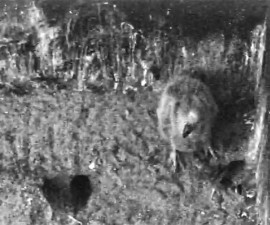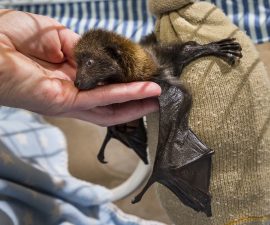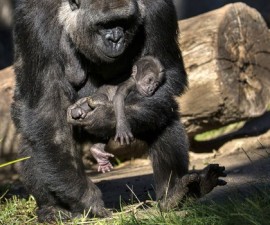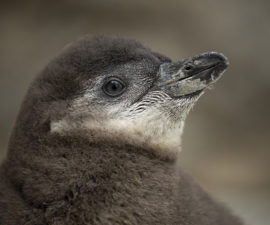A partnership is unfolding at the San Diego Zoo between primate keepers and the Zoo’s François’ langur monkeys. Animal care staff, using assisted-rearing techniques, are getting some unique help from the François’ langur monkey group to raise an endangered 7-week-old baby langur, named Chi (pronounced chee). The monkeys are actively assisting the primate team by periodically transferring the infant to keepers for feeding and playtime, and then taking him back when the activities are over. Animal care staff said this distinctive technique not only allows Chi to receive the care and nursing he needs, but also provides him the opportunity for a normal social structure as part of his family group.
“I can’t stress enough how amazing this opportunity is for us,” said Jill Andrews, animal care manager for primates at the San Diego Zoo. “The amount of cooperation between the monkeys and the keepers for the care of this 7-week-old infant is, frankly, astonishing. He is way ahead of the curve.”
The assisted-rearing protocol became necessary after Chi was born in February, and animal care staff realized that his mom, 4-year-old Mei Li (pronounced may lee), had rejected him and failed to nurse him. Though this species practices alloparenting, where all members of the group participate in rearing their young, the other langur group members had also decided to not take care of the baby. That did not deter animal care staff, as they worked tirelessly to reintroduce Chi to his family and provide him with the nourishment he needs.
“Infants need to nurse every few hours, in order to stay healthy—so, any long period of time that went by when he wasn’t being able to nurse from mom, we had to supplement that,” said Mindy Settles, primate keeper at the San Diego Zoo. “Every day, we did introductions trying to pair him back with mom; and it wasn’t actually until he was over a week old—almost a week and a half old—that mom picked him up and actually held him for the first time. So, it was necessary for staff to step in and give him food supplements.”
Animal care staff said they use the trust they have built with the monkeys and the species natural alloparenting behavior to help them create a situation where the infant spends part of his day with his family group, and the rest of the time with them. Their plan is to continue to use their assisted-rearing protocol with Chi until he’s able to feed on his own.
Francois’ langurs are a species of Old World monkey native to Asia—ranging from southwestern China to northeastern Vietnam. The species is listed as Endangered on the International Union for Conservation of Nature (IUCN) Red List of Threatened Species, due to a 50 percent decline in their population over the past 30 years. Hunting to supply body parts for traditional folk medicines is a primary reason for their diminished numbers. Habitat loss and fragmentation due to agricultural development has also had a negative effect on the species population.
François’ langurs first came to the San Diego Zoo in 1980 from the Guanqzhou Zoo in China. The San Diego Zoo was the first facility in the Western Hemisphere to house this species, and the breeding program here helped establish the population of François’ langurs now found in zoos across the U.S. Guests can see the langur group in their habitat along Center Street.

